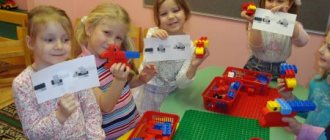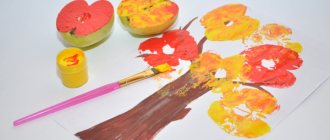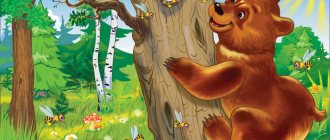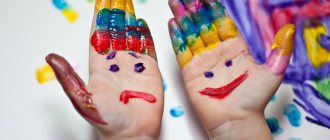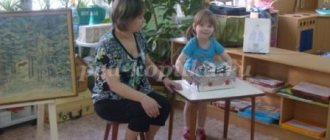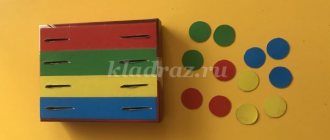The hidden meaning of the fairy tale “Ryaba Hen”, detailed analysis
All the best! I propose to analyze the fairy tale of the Ryaba hen.
It should be noted that in the Russian tradition, fairy tales have from 3 to 7 hidden meanings. Moreover, the simpler the fairy tale, the more meanings are hidden in it. For analysis, I propose to voice the fairy tale itself and analyze it as it is retold. Once upon a time there lived a grandfather and a woman, and they had a pockmarked chicken.
The first meaning is childish, it is understandable, an old man and an old woman live and have a chicken on their farm.
The second is a slightly hidden meaning, but also quite obvious. The family standard is a man and a woman who have created a family and have a common household, albeit not a rich one, from one chicken.
The third meaning is even more interesting specifically in listing the hierarchy, first the grandfather, the patriarch of the family, then the woman, and only then the animal chicken. It would seem logical, but here something else is interesting: the chicken or our smaller brothers are, of course, lower than us, but also the cattle and nature do not need to be tyrannized, we are all one.
The fourth meaning is that a grandfather and a woman are a model of humanity in miniature, moreover, not a man and a woman, but precisely old people, i.e. old humanity has lived on this planet for more than one millennium. Not this particular couple, but humanity as a whole, and they are just a miniature model of it.
The chicken laid an egg, and not just an ordinary one, but a golden one! Grandfather didn't beat me! Baba did not break it.
Knowing the first four meanings of a fairy tale, and in Russian folk tales there can be up to 7 hidden meanings and some I simply may not understand, we can make out what is happening in the fairy tale.
The first level is understandable at a child’s level, the old man beat and the old woman beat and nothing happened.
The second level is much more difficult, but why did they beat him at all? People went crazy and wanted to break the golden egg, what should they do for breakfast? Well, take it to the market, sell it and buy yourself a barrel of black caviar. The fact is that the egg in pagan Rus' is a symbol of life, and gold is the metal of the dead, the metal of death. What did the chicken lay on grandma and grandpa? Yes, the news is about imminent death, it is clear that they are old people and one of them, or even both, will soon go over the edge, so they beat the egg, fight diseases and try not to go over the edge.
Moreover, the struggle is useless, no matter how much they fight, the result is obvious, since you can be cured, twice, a hundred times, but the result is a foregone conclusion.
The third meaning is that the egg is also a symbol of life on the planet, of world order. Anyone in doubt can ask church officials whether it is necessary to carry eggs to the graves of their ancestors on Easter and they will receive an answer. However, archaic knowledge remains! Many people do not understand the meaning of this pagan tradition. But the terrible news is that the old world has died or is dying. The egg is golden i.e. dead, a chicken or a new life will not be born from it, it’s clear why you need to beat it, and not run around screaming with joy, packing your bags for the nearest resort by the sea.
Regarding 4, etc. the meanings here elude me...
And the mouse ran, waved its tail, the egg fell and broke.
The grandfather is crying, the woman is crying...
From a logical point of view, some kind of schizophrenia is happening! Remembering the movie Terminator Part Two, I want to ask the question, what is the task? The old people's task was to break the egg; they were not going to leave it whole. Hence the question: when the task is completed, why do they cry? If we are talking about the cost of an egg as a gold item, then they beat it themselves, but even if it is broken, it is made of gold and you can buy a bunch of products. The withdrawal of tears in old people is due to another reason. For what?
The fact is that the mouse is the link between the world of the living and the world of the dead, in fact a mediator. Moreover, in more than one fairy tale she will be the main character, help the girl in Morozko’s fairy tale, etc.
So why is she the connector? She lives both on the ground and underground!
The childish meaning is clear, the mouse ran and broke it.
The meaning is that the second old world dies and its messenger breaks between the worlds.
The third meaning is that the old world has collapsed, shattered and what will now be incomprehensible, the new is always scary. As wise people said, living in an age of change is interesting, but God forbid you, who lived through the 90s, easily agree with this. There were a lot of events and it’s impossible to call them uninteresting, but living at that time was not easy.
The fifth meaning is that humanity is not able to defeat itself and a certain messenger solves their problems and it is not at all clear what he will demand for such a solution to the problems.
The sixth meaning is generally on the verge of conspiracy theories. Some third almost mystical force intervenes in the problem. Moreover, he casually destroys the old world and hurries on about his business. So, I came, I saw, I conquered?
The seventh meaning may be cooler than the sixth in its conspiracy theory, but it will not appeal to women, especially during the period of our matriarchy. The fact is that a man is everything spiritual, he is a patriarch, which is what the fairy tale says because he's an old man! A woman is responsible for the physical world; she is a mother or matter, material. The husband fulfills the role of gods on earth in pagan senses. When a man and a woman connect, he breathes life into her. If a man does not invest his soul, then nothing will happen and matter that is not alive or not fertilized, if you wish, will simply come out.
In other words, the old humanity, if you will, antediluvian, was faced with a problem that could not be solved not by spiritual methods, not by scientific methods, not by simply material ones, for example, by firing some kind of nuclear missiles at the adversary. There is an intervention by third forces, which, let’s just say, ran away, but this does not mean that they will not issue or have not already issued an invoice for the services, which is obligatory for repayment. After all, they couldn’t even solve the problem, but this force solved it casually. Although destroying the entire old world. Therefore, there is no point in bargaining with her, there are no methods against the mouse.
And Ryaba the Hen tells them don’t cry, grandpa, don’t cry, grandma, I’ll lay you a new egg, not a golden one, but a simple one.
It would seem, on the contrary, that one should now cry. After all, if the hen lay golden eggs, the woman would take them to the market every morning and they would build stone mansions for themselves and buy the woman a mink coat. You can ride around the resorts and buy your grandfather the most fashionable cart, as they said in the 90s, a fashionable cart six hundred. It’s a strange consolation, don’t you think?
The first meaning is childish; there is no point in voicing it.
The second is a little more complicated, but quite simple, the old humanity valued food more than material values, and therefore spiritual food.
The third meaning is even more terrible. A new world is coming, where food is more expensive than show-offs, some kind of famine is coming, and getting regular, albeit meager, food is already good.
The fourth meaning is that the optimistic grandfather and woman are promised reincarnation, i.e. new life after death and this is their consolation.
The fifth meaning is that the old dead world will be replaced by a new living one.
The sixth will not be liked by neo-pagans and others who believe that there used to be a golden time, but now it’s a bad time. Just to replace everything bad and dead, the arrival of the good and living is expected.
The seventh meaning is obvious, but again not everyone will like it. In addition to the metal of the dead, there is a meaning in the phrase gold, which is something good. For example, the golden age of Russian poetry is so colorfully described. There used to be a better world, but now it’s a simpler one. In a simple world, everything is simpler and also evil. It is more open and straightforward and we suffer from it. The golden age for humanity is over.
It would seem that after such news, the grandfather and woman should cry even more, but what do they do? They are just that, and the reaction of the grandfather and grandmother is not written in a fairy tale. In other words, the old humanity no longer exists.
Want to know more? Subscribe to the channel! Beaver everyone!
Source
Lesson topic: “Analysis of a narrative text (using the example of the Russian folk tale “The Ryaba Hen”).”
Lesson topic: “Analysis of a narrative text (using the example of the Russian folk tale “The Ryaba Hen”).”
The purpose of the lesson: to develop the skill of language analysis, introduce the concept of syntactic parallelism, and cultivate patriotism.
Repetition: constant epithet, types of speech.
View the contents of the document “Lesson topic: “Analysis of a narrative text (using the example of the Russian folk tale “The Ryaba Hen”).” »
Speech development lesson
Lesson topic: “Analysis of a narrative text (using the example of the Russian folk tale “The Ryaba Hen”).”
The purpose of the lesson: to develop the skill of language analysis, introduce the concept of syntactic parallelism, and cultivate patriotism.
Repetition: constant epithet, types of speech.
There are works that you can keep in your memory all your life, return to them, learn from them. Such works include the fairy tale “The Ryaba Hen”. In today's lesson we will try to understand what its ideological meaning is and we will learn to analyze prose text. You are already familiar with the analysis of lyrical works, but you need to be able to analyze prose, and for several reasons. Firstly, you will need this when passing the State Exam and the Unified State Exam, and secondly, it’s just very interesting to find in something you’ve known for a long time that you didn’t even suspect. Analysis is always a small miracle, the discovery of the author’s intention.
Please write down the date and topic of the lesson. It was no coincidence that I chose the fairy tale “The Ryaba Hen”. She has been with us all her life. First, it is told to a very small child, then he, not yet able to speak properly, carefully retells it to dolls, then reads it at school, when he is just learning to read and write. And then he reads it to his children, and then to his grandchildren. But there are no fairy tales without lessons. And it is no coincidence that as an epigraph for today’s lesson I took the words of A.S. Pushkin, also by the way, well known to everyone: “A fairy tale is a lie, but there is a hint in it, a lesson for good fellows.” Write the epigraph in your notebook, paying attention to the correct formatting of the epigraph.
Conversation about the content of the fairy tale.
– What do we learn from the first two sentences?
– What does the word “ripple” mean? (This is a truncated form of the adjective “pockmarked” - motley, ordinary).
Write down the MSS, complete the series with your own examples.
Ryabka hen, blue sea, red maiden. What is the name of this trope? (Permanent epithet).
Let's return to the text. What happened next? (A miracle happened, they were blessed with unprecedented happiness.)
Notice the contrast between ordinary life and the miraculous egg. What is this technique called?
Grandfather and woman have never seen such an egg. So what are they doing? (They try to break it). For what? (Find out what's inside).
The grandfather got to work first, then the woman. They were tired, left the Egg unattended, and then the mouse ran, waved its tail a little, and it broke.
It was such a good egg. Which one? (Golden, expensive, beloved). Tell me, is “golden” an epithet or not? Why? Write down 3-4 SSCs in which “golden” is used in a figurative meaning. In the hands of a grandfather and a woman there is unprecedented beauty, unheard of happiness. They would have looked and rejoiced, enjoyed happiness, but they didn’t save it and lost their happiness. It’s empty now, just shells, nothing to look at. There was great happiness, but it was destroyed with my own hands.
What are the grandparents doing now? They cry, they die. How does the chicken comfort them? He promises to lay another egg, only a simple one. Although the promise is small, the grandfather and woman are happy with it. What proverb can you remember while reading this fairy tale? (We don’t keep what we have; when we lose it, we cry). And how many examples of this! You did not save love, friendship, peace in the family, the precious gift of nature - health and youth, thoughtlessly giving them away in exchange for bad habits and harmful pleasures. I lost everything, and then remorse and shame gnaw at me. I wish I had come to my senses earlier, come to my senses, but nothing could be returned, but they advised, explained, and held me back!
6. Let us now turn to the linguistic analysis of the fairy tale. The short tale is composed harmoniously and gracefully. There is nothing superfluous in it, every word is in place and exactly what it should be.
First of all, determine the type of speech.
Who is the fairy tale addressed to? How can this be seen? (Words with diminutive suffixes).
Write down the words, highlight the suffixes.
Why is rhyme needed? (To make it easier to remember). This means that a fairy tale develops thinking and memory.
Pay attention to the repetitions: beat, beat; beat, beat. Why are they? (Show multiple actions, that they had time to think).
It is no coincidence that the sentences are constructed in the same way: “The grandfather is crying, the woman is crying, and the chicken is clucking.” This construction of sentences is called syntactic parallelism. Come up with 3 sentences using this means of speech expression.
The word order in the tale is noteworthy: in the first three sentences it is reversed. Why? (The new is the heroes, and the given is that they existed). This word order is typical for the calm transmission of long-standing events, long-term or permanent actions. But the dynamics of the development of the event appear before the listener’s eyes.
What the grandfather and woman failed to do happened by accident. The testicle was destroyed not by brute force, but by the most inconspicuous little things. Read it. How is a mouse's weakness shown? Pay attention to the last verb in the sentence. "It broke". What difference does it make: broken - broken? What does the fairy tale teach in this case?
The grandfather and woman are greatly distressed. They quarreled, took offense at each other and went to different corners of the hut. What gives us the right to think so? (At the beginning “grandfather and woman”, and at the end of the fairy tale the grandfather is separate, the woman is separate).
How is the chicken behaving? What could she tell them? How does she console them? (Promise of specific help).
As we can see, the fairy tale is impeccably, masterfully composed, easily captivates readers and teaches them worldly wisdom.
7. What do you think is the main idea of the fairy tale?
This tale is about failed happiness, about irreparable losses and losses, the culprit of which was man himself. A tale about unpreparedness for great happiness, about the recklessness of hasty actions, about the inability to manage luck.
But this fairy tale also teaches that people should not fall into despair from failures and mistakes; it speaks of the diversity of life, the possibility of happiness in little things, and the infinity of beauty.
Homework: write a mini-essay “What does the fairy tale “The Ryaba Hen” teach us?
Research work: where did the joke “There comes a horned goat” come from?
Russian folk tale in processing
Once upon a time there lived a grandfather and a woman. They had Ryaba chicken. The hen laid an egg. The egg is not simple, golden.
Grandfather beat and beat, but did not break.
The woman beat and beat, but did not break.
The mouse ran and waved its tail. The egg fell and broke. Grandfather and grandmother are crying.
The hen clucks: “Don’t cry, grandfather, don’t cry, woman, I’ll lay you another egg, not a golden one, a simple one.”
cluck cluck cluck cluck. “Don’t cry, grandfather, don’t cry, woman. I will lay another egg for you, not a golden one - a simple one.”
Source
